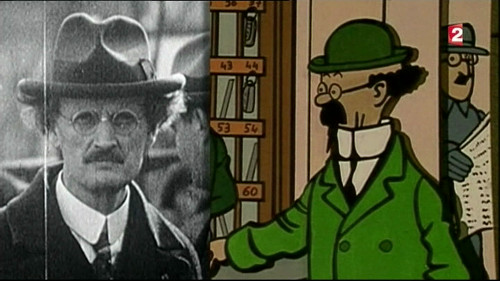
What is the connection (I hear you shout) between the pioneering Solar Impulse flight, Tintin, opera, Star Trek and Goldfrapp?
One of the people behind Solar Impulse is Bernard Piccard, a Swiss psychiatrist and self-described explorer. It turns out he didn’t just take up flying about the world in various craft to overcome the tedium of psychiatry. In fact, there’s a family history of this sort of thing. His father, Jacques, is known for his undersea adventures including his 1960 US Navy funded, 5 hour descent in his bathyscaphe to the bottom of the Mariana Trench.
Pathé newsreel about Auguste’s 1932 ascent
Bernard’s grandfather, Auguste, was a physicist who in 1931 visited the stratosphere by balloon and made measurements of cosmic radiation. He was also a professor of physics at the Université libre de Bruxelles and it was in Brussels that a certain Hergé noticed this unusually tall man who had to be scaled down to become the dotty Professor Calculus in The Adventures of Tintin.
Gene Roddenberry named his Star Trek character, Jean-Luc Picard, after Auguste and his twin brother, Jean Félix, a chemist, engineer and high-altitude balloonist who migrated to the United States, but it’s unclear whether Jean-Luc was supposed to be a member of the family.
In 2011 the BBC Concert Orchestra commissioned an opera based on Auguste Piccard’s flight called Piccard in Space. The composer was Will Gregory, the other half of electro-duo Goldfrapp. It was not well received.
|
“A few catchy hooks get subsumed here by canons and fugues and even the much-publicised Moog Ensemble is afforded little more than sub-Doctor Who warblings. Thin? It’s pretty much transparent.” —The Independent “If the libretto is amateurish and lacking in drama, the music has a sort of high-spirited vacuousness. It strenuously goes through the operatic motions, but it has no tunes, no character, and very little colour.” —The Financial Times “But it kept reminding me of water pouring out of a tap straight down a plughole. There’s nothing holding it together: no backbone, no dramatic impetus, no larger musical purpose. It just rolls aimlessly on, to no ultimate effect whatsoever.” —The Telegraph |